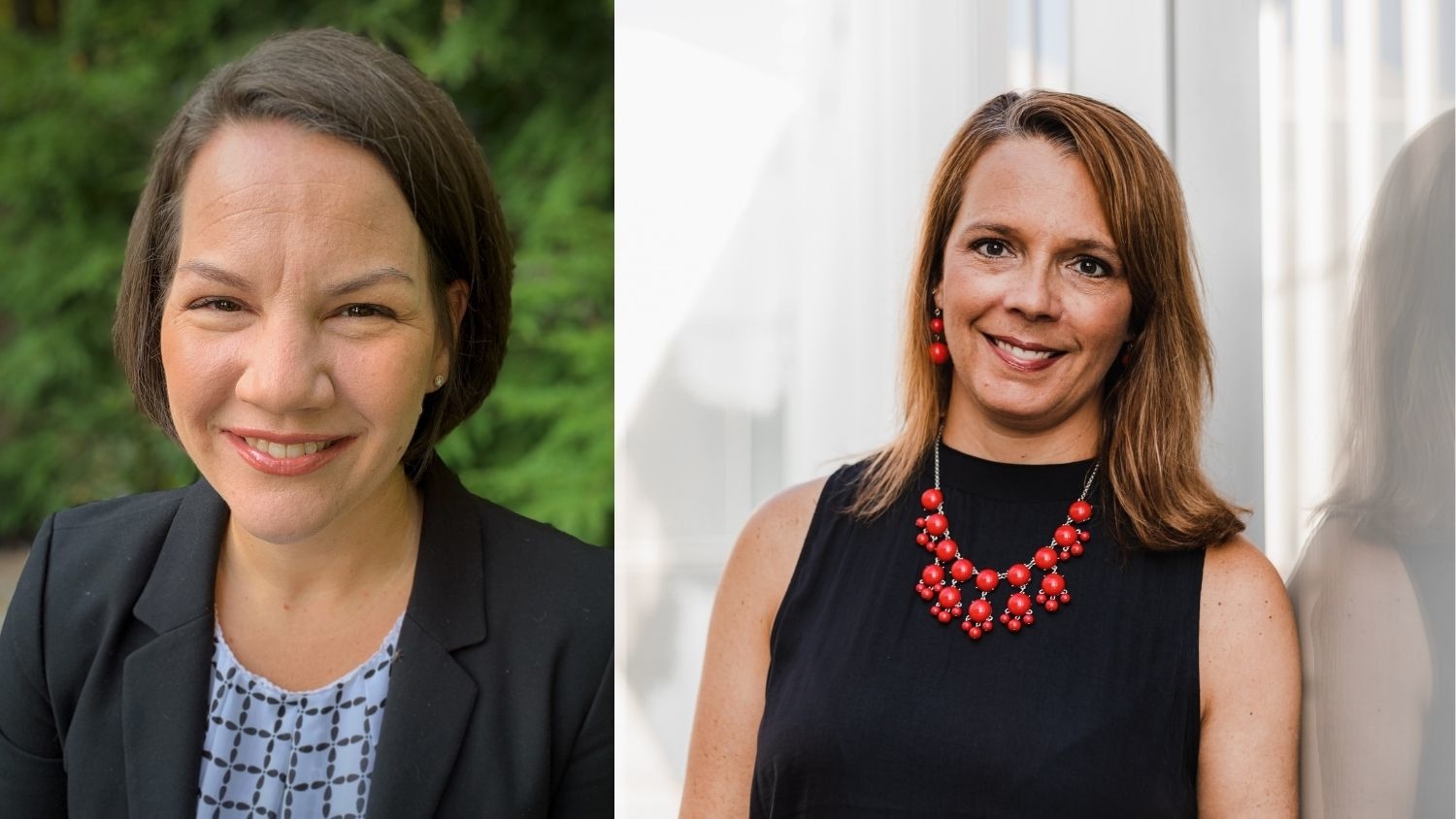NC State’s Women Leaders in Pulp and Paper

In honor of Women’s History Month, we reached out to Cindy Hendren and Jennifer Piercy of NC State’s Pulp and Paper Advisory Board (PPAB) to discuss their professional journeys and goals.
Hendren is the board’s first female president and works full-time as mill manager for International Paper’s mill in Henderson, Kentucky. Piercy is the first female to simultaneously hold roles as the board’s executive director and director of undergraduate recruiting for the Paper Science and Engineering program at the NC State College of Natural Resources.
Their Journeys to NC State
Both women are graduates of the Department of Forest Biomaterials’ Paper Science and Engineering Program, formerly known as the Pulp and Paper Technology Program. Hendren grew up in a paper mill town and was introduced to the program while working for an NC State alumnus.
She loved the program and its close-knit community. “I didn’t feel like a number, I felt like part of a program,” said Hendren. After graduating in 2005, she went on to hold multiple positions at International Paper.
Piercy also grew up near a paper mill and was introduced to the program by NC State alumni. She completed five internships during her college career, which led her to work in operations and manufacturing.
After graduating in 1994, she went to work for Proctor and Gamble and later in career services at the University of Virginia. While it was an unexpected career shift, Piercy enjoyed the position. “I absolutely loved working with students,” she said. She returned to NC State in 2012.
Leaders in their Field
Both women are pioneers in their roles, working in a field that is typically dominated by white males. Hendren encourages students entering her field to “not be held back because you don’t look like the people who are sitting in the seats you want to be in.”
She also stresses the important role that relationships play in leadership. “Relationships are such a fundamental piece of trust, and to be a good leader you have to have the trust of your team,” said Hendren. As mill manager, she makes a point to get to know all the mill workers, knowing that each person plays a valuable, contributing role.
Hendren’s leadership style echoes that of a former senior vice president of International Paper. “[He] knew me by face and knew me by name … and he’d make it a point to come over and talk to me and ask me how my latest job was going,” Hendren said. “It made me feel important and it made me feel valued and I want to be that kind of leader as well.”
Piercy also noted the importance of mentors in her career. She encourages students to have allies and mentors both in and out of the industry and to connect with people different than themselves. “When I look back at my biggest periods of growth personally and professionally, it’s when I’ve been in real close contact with someone who is dramatically different than me,” said Piercy.
She also says to take life one step at a time. After having two children, Piercy worked part-time in the health and wellness industry, a job that allowed for a flexible schedule. She was glad to see how supportive everyone was when she came back to the pulp and paper industry.
“I love for the up-and-coming generation to see that,” said Piercy. “So whether they’re male or female, if they make a personal decision that pulls them away for a period of time, the opportunities are still going to be there.”
Goals for the Future
Piercy and Hendren have a significant influence in the Department of Forest Biomaterials, helping to coordinate fundraising, program engagement and industry relations. Both have clear goals for what they want to accomplish in their roles.
“If I could be queen for a day, I would love a multimillion-dollar endowment to promote diverse populations in our program,” Piercy said. She particularly hopes to bring students of color and first-generation students to the program.
Hendren also hopes to bring more underrepresented students to the program, including those from rural communities. She notes that while the number of women entering the field has increased dramatically over the past decade, this hasn’t been the case for other underrepresented groups. Hendren points to the importance of scholarships, especially during the COVID-19 pandemic, in helping students pursue their careers and goals.
Through their hard work and dedication, Piercy and Hendren both serve as role models for the younger generation and those in their field.